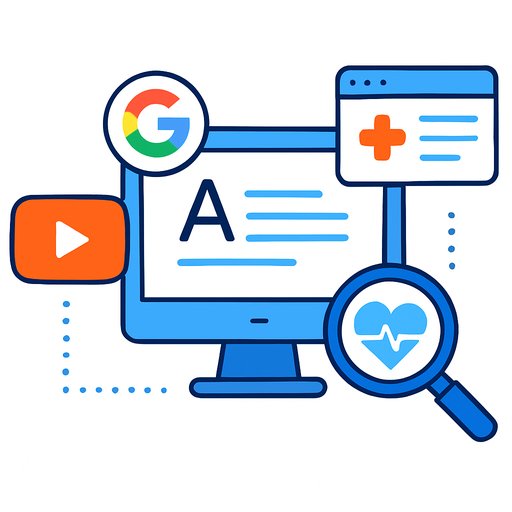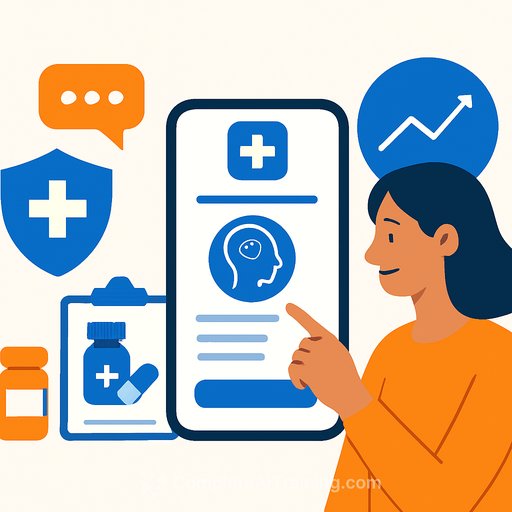AI Healthcare Funding Is Surging - Here's What It Means For Your Organization
Startup funding has picked up this year, and AI-focused healthcare companies are getting a large share of it. The driver is simple: high-cost, high-friction workflows are begging for automation. If you've ever walked out of an ER with a CD of imaging, you've felt the gap between what's possible and what's deployed.
The broad trend
Investment into healthcare and biotech with an AI core continues to climb. 2025 is already ahead of 2024's full-year totals, signaling confidence in real-world adoption. Many providers still run on outdated tech, so the upside from workflow modernization is hard to ignore.
The numbers
So far this year, AI-powered health tech startups have raised an estimated $10.7 billion across seed to growth rounds. That's 24.4% higher than the $8.6 billion raised in all of 2024. Funding peaked in Q1 and eased in the next two quarters, but the year remains on a strong trajectory.
Why investors are leaning in
- AI adoption in healthcare is accelerating 2.2x faster than the broader economy.
- Healthcare makes up about one-fifth of U.S. GDP but accounts for only 12% of software spend - plenty of room to modernize.
- 85% of generative AI spend in healthcare flows to startups, not incumbents.
- 22% of organizations have implemented domain-specific AI tools - up 7x from 2024 and 10x from 2023.
- Medical documentation and revenue cycle management (RCM) are nearly 60% of all healthcare IT spend - a clear signal of where AI is landing first.
Standout 2025 rounds to watch
- Isomorphic Labs - $600M in March led by Thrive Capital with GV and Alphabet participating. Focus: AI-driven drug discovery and development.
- Lila Sciences - $550M across three rounds this year (Seed $200M in March; Series A $235M in September; Series A extension $115M in October at a $1.3B valuation). Focus: "Scientific superintelligence" for life sciences, chemistry, materials. Backers include General Catalyst, Alumni Ventures, Catalio, Flagship Pioneering, NVentures.
- Abridge - $250M Series D in February, then $300M Series E ~4 months later; valuation $5.3B. Focus: turning patient-clinician conversations into structured clinical notes.
- OpenEvidence - $925M Series A in February (led by Sequoia), $210M Series B in July (co-led by Kleiner Perkins and GV), $200M Series C in October (led by GV); valuation moved to $6B. Focus: AI medical search and clinical decision support.
- Duos - $130M strategic growth equity in October led by FTV Capital. Focus: member activation and benefits execution.
- Attuned Intelligence - $13M seed in October. Focus: hospital call center AI agents; handling 24/7 mainline calls and targeting up to 70% automation across languages.
- Honey Health - $7.8M seed. Focus: AI agents that log into existing EHRs and complete end-to-end admin workflows to reduce overhead.
- Hello Patient - $22.5M Series A in September led by Scale Venture Partners. Focus: conversational AI for patient communications.
Where AI is delivering value first
- Medical documentation: Ambient note-taking and structured summaries reduce after-hours charting.
- RCM: Prior auth, eligibility, coding assistance, claims follow-up, and denials management.
- Patient access and communications: Call center triage, scheduling, reminders, and multilingual support.
- Clinical decision support: Evidence retrieval and point-of-care insights with audit trails.
- Drug discovery: Target identification, molecule design, and trial optimization.
A practical 90-day playbook for healthcare leaders
- Pick one painful workflow (documentation, prior auth, or call containment). Define success as time saved, fewer handoffs, or higher first-call resolution.
- Run a controlled pilot on 1-2 service lines or clinics. Cap scope, set a weekly cadence, and require vendor-delivered metrics.
- Stand up lightweight governance: PHI handling, data retention, model update policy, human-in-the-loop checkpoints.
- Integrate with what you have: EHR, telephony, ticketing, and identity. No integration, no scale.
- Measure relentlessly: Minutes saved per clinician per day, denial rate, time-to-auth, patient satisfaction, call containment rate, and net financial impact.
Procurement checklist (use before you sign)
- Security and compliance: HIPAA BAAs, audit logs, PHI encryption, SOC 2, data residency, model/provider transparency.
- Clinical safety: Hallucination controls, confidence thresholds, escalation rules, and easy human override.
- EHR and workflow fit: API maturity, SMART on FHIR support, SSO, and write-back capabilities.
- Quality: Benchmarks on your own data, specialty coverage, accents/language handling, and edge-case behavior.
- Total cost and ROI: Pricing unit (per seat, per minute, per note), expected savings, and time to payback.
- Durability: Financial runway, reference customers, and model/provider portability to avoid lock-in.
What this means for your strategy
The money is flowing toward tools that compress admin work and speed up clinical decision-making. If you're a health system, the fastest returns are showing up in documentation, RCM, and patient access. If you're in life sciences, expect continued momentum in model-driven discovery and trial execution.
Keep scope tight, measure real outcomes, and scale only what proves itself. That's how you turn this funding wave into lower costs, less burnout, and better patient experience.
Upskill your team for practical AI deployment
If you're building internal capability around AI workflows and vendor evaluation, consider structured learning paths by role. A good starting point: AI courses by job for quick, applied upskilling.
Bottom line
AI funding in healthcare is climbing because the tech is finally good enough to fix expensive, slow processes - and providers are adopting it. Focus on a few high-impact workflows, insist on measurable outcomes, and let the data tell you what to scale next.
Your membership also unlocks:






